YANGON—Since its submission to President U Win Myint and State Counselor Daw Aung San Suu Kyi on Monday, the government-backed Independent Commission of Enquiry (ICOE)’s report on human rights violations in Rakhine State has yet to see the light of the day.
The report covers human rights violations and related issues against Rohingya Muslims and others following terrorist attacks by the Arakan Rohingya Salvation Army (ARSA) in Rakhine State in August 2017.
However, a Burmese-language summary of the ICOE report released by the Myanmar President’s Office offers a hint of the complexity of one of the most controversial issues Myanmar faces today. The government said the commission was formed with a view to seeking accountability and formulating recommendations on steps to be taken to ensure peace and stability in Rakhine.
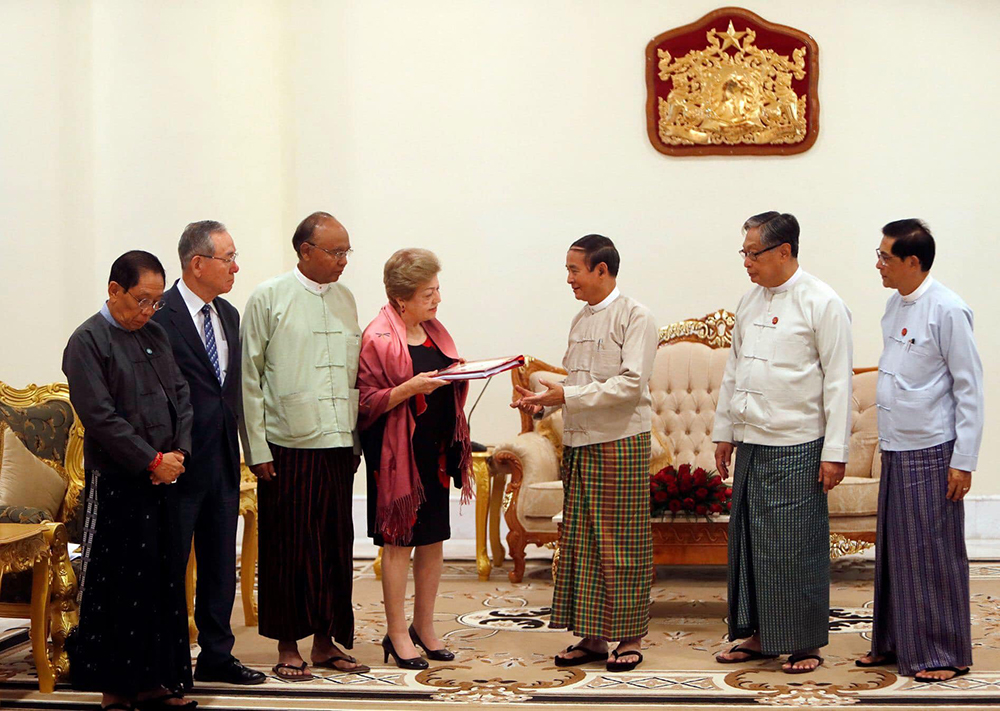
The ICOE said it “attached great importance” to accessing information on the ground and collecting statements from the affected communities and witnesses of violence, as well as from various authorities. The ICOE’s Evidence Collection and Verification Teams (ECVTs) were dispatched to Rakhine State, Yangon and Naypyitaw to gather evidence. The ICOE interviewed about 1,500 witnesses from various communities in northern Rakhine State, including Muslims, Rakhine, Mro and Daingnet, as well as military and police personnel.
Contradicting international accusations, the report denies that the government security forces’ clearance operations against ARSA in northern Rakhine had “genocidal intent.” However, it concludes that serious human rights violations including war crimes took place during the operations between Aug. 25 and Sept. 5, 2017. The ICOE found that these were committed by security forces and their thugs, as well as by ARSA members and Rohingya themselves.
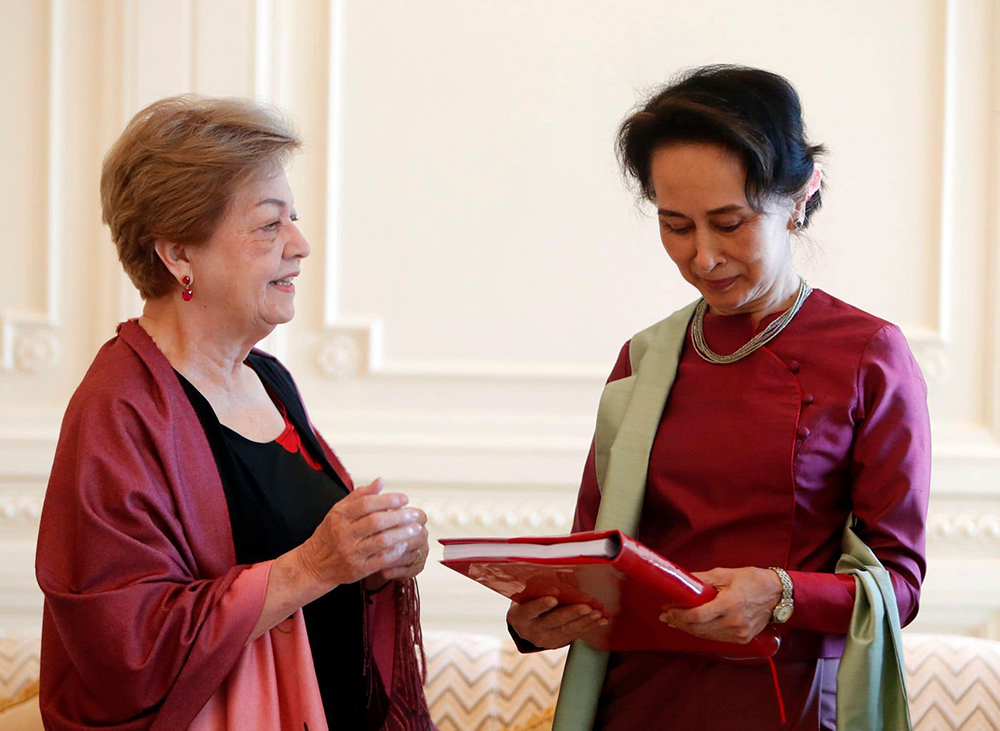
The report also includes 22 recommendations; the most prominent may be the ICOE’s call for both the Myanmar government and military to conduct further investigations and prosecute those involved in the crimes mentioned above.
In the wake of the release of the report summary, here are some interesting highlights—most of them never before published—that you shouldn’t miss.
ARSA: Overwhelming Force
On the morning of Aug. 25, ARSA launched attacks on 30 police outposts and an army battalion in northern Rakhine State.
-Estimated number of ARSA members involved in the attack on the day:
more than 9,000.
-Damage caused:
Eight bridges on major local trade routes were destroyed; another 26 police outposts were attacked in the following days.
-Estimated number of people involved (ARSA and local Rohingya) in attacks after Aug. 25:
more than 14,000—the number far exceeds the total headcount of government security forces in northern Rakhine State.
-Number of security forces on the front line:
between 3,000 and 3,500.
-Number of supporting forces:
between 1,000 and 1,500.
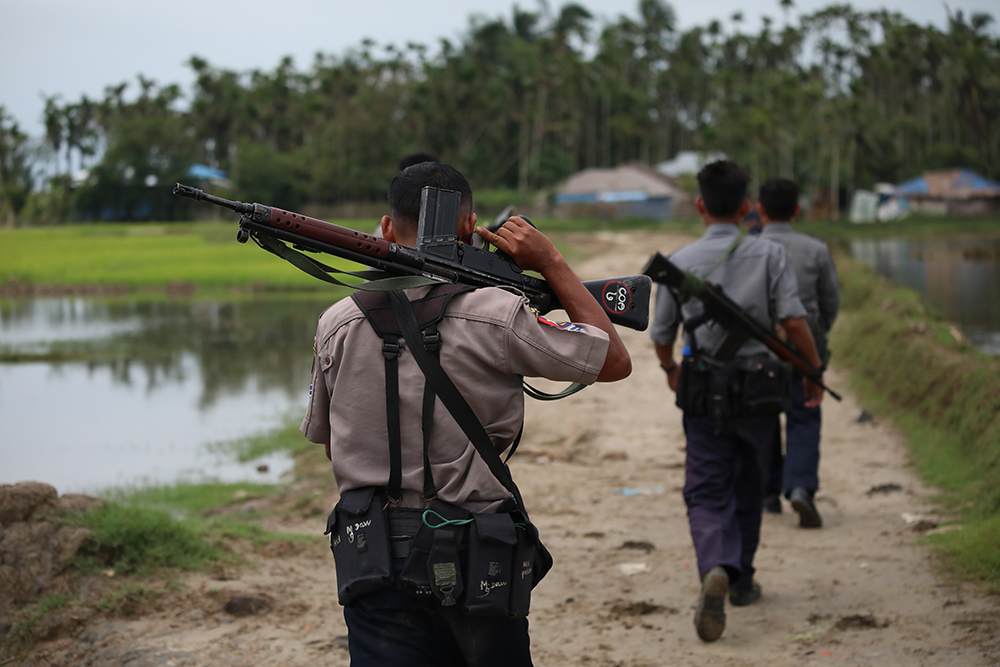
The ICOE report notes that the security forces were overwhelmed by such a large number on the ARSA side, and that the army never expected such an attack. “Security forces had no idea how to cope with the throng of ARSA fighters and their armed civilian supporters,” it says.
-Casualties:
Based on government data, the ICOE report says 376 ARSA fighters were killed while two soldiers, 11 policemen, two government employees and 133 civilians were killed during the clearance operations.
-Homes damaged:
more than 40,000.
-People displaced:
More than 410,000 (mostly Rohingya) fled to Bangladesh.
The ICOE notes that casualty and damage figures vary drastically depending on the source.
Nearly 1,000 People Killed

The ICOE found that security forces committed massacres in four villages in three townships in northern Rakhine during the clearance operations, based on witnesses’ accounts.
-Massacre sites:
Min Gyi Village in Maungdaw Township, Chut Pyin Village in Rathaedaung, and Maung Nu and Gutar Pyi villages in Buthidaung.
-Death Tolls
- Between 500-600 civilians inMin Gyi Village, probably the largest number killed.
- Nearly 100 (ARSA fighters and civilians)at Chut Pyin Village.
- Between 100-200 (mostly civilians) atMaung Nu Village.
- 19 atGutar Pyin Village.
The report notes that despite locals’ claims of killings during armed clashes between security forces and ARSA in other areas, the number of civilian deaths and mass killings in those locations could not be confirmed.
No Gang Rape
For all the international media reports and UN statements on the gang rape of Rohingya women by security forces, the ICOE could find no reliable witness accounts supporting the claim.
“While there were accounts of gang rape, they were not from eyewitnesses; rather, they relied on hearsay,” the commission said.
However, regarding claims by some Rohingya women that they had to undergo body searches by security forces, the report states: “It may fit [a charge of] sexual harassment.”
Property Destruction

The ICOE says house-burning cases were reported in all 13 areas it studied for the report. The most serious episode was in Min Gyi Village, which was entirely reduced to ashes.
-Other affected areas:
- Chut Pyin,where most Rohingya houses were burnt down.
- Nearly 300 houseswere torched in Gutar Pyin Village.
- Half of the total number of houses in both Mawtula and Inn Dinvillages were set on fire.
-Who did it?

According to witnesses, the arson was mostly committed by:
- Security forces and their local thugs
- ARSA members
The commission found that security forces failed to deter the destruction of Rohingya people’s properties.
Looting
According to many witnesses, looting was mostly carried out by non-Rohingya residents and some security force personnel.
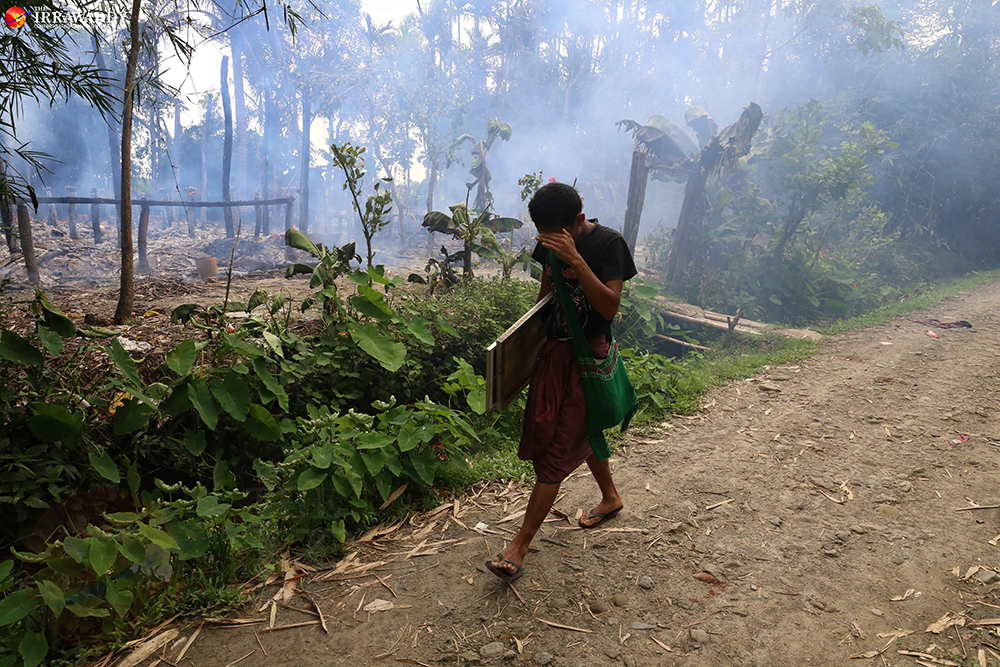
Torture
Witnesses recalled seeing soldiers beating Rohingya to force them to follow their orders.
Forced Displacement

The ICOE found little solid evidence to suggest that security forces pressured Rohingya to flee to Bangladesh.
-Why did they leave?
- Fear of internal conflictsfollowing the armed clashes between security forces and ARSA, as well as ARSA’s initial attacks.
- Violence, including mass killings and property destruction, resulted in homelessness and livelihood hardships, causing them to decide to flee to Bangladesh.
- ARSA members set Rohingya villagers’ houses on fireto stimulate an exodus, and pushed them to torch their properties before fleeing to Bangladesh to ensure international aid and settlement in a third country.
- ARSA also burned the houses of other minority nativesincluding ethnic Mro and Daingnet, forcing them to leave their villages.
- Witnesses said ARSA committed mass killings of Hinduswhile taking Hindu women to Bangladesh for forced marriage with ARSA membersafter forcing them to convert to Islam.
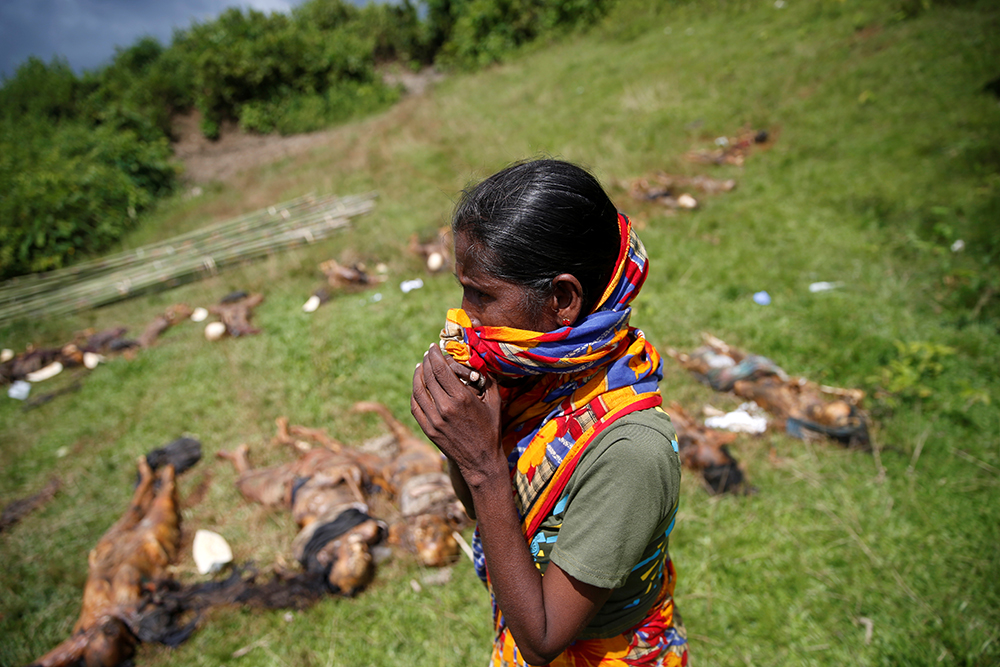
No Genocidal Intent
The report says:
–“The ICOE has not found any evidence suggesting that these killings or acts of displacement were committed pursuant to an intent or plan to destroy the Muslim or any other community in northern Rakhine State.
“There is insufficient evidence to argue, much less conclude, that the crimes committed were undertaken with the intent to destroy, in whole or in part, a national, ethnic, racial or religious group, or with any other requisite mental state for the international crime of genocide.
“The ECVT findings reveal no indication of a pattern of conduct from which one could reasonably conclude that the acts were committed with ‘genocidal intent’.”
— “On the basis of the information available and of the investigations carried out in northern Rakhine State and elsewhere…war crimes, serious human rights violations, and violations of domestic law took place during the security operations between 25 August and 5 September 2017.
“Although these serious crimes and violations were committed by multiple actors, there are reasonable grounds to believe that members of Myanmar’s security forces were involved.
“ARSA’s initial attacks—drawing on a very large number of mobilized villagers—provoked the response by Myanmar’s security forces. The killings of innocent villagers and destruction of their homes were committed by some members of Myanmar’s security forces through disproportionate use of force during the internal armed conflict.”
You may also like these stories:
Myanmar State Counselor Says Int’l Condemnation of Country Over Rohingya Crisis Is Unfounded

















